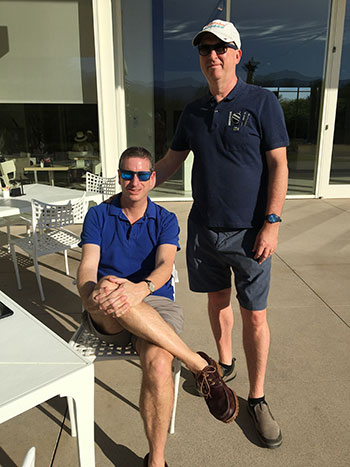Talk to Us

Grant Monck. (pictured: Bob (left) with Grant.)
New College set Bob Freedman on a lifetime path.
He’s made a lifetime commitment to giving back.
Bob Freedman has devoted his legal career to representing Indigenous groups in Canada. He’s equally devoted to New College. Freedman serves on New College’s Alumni Association’s board of directors, as a member of the executive committee and sits on its Legacy Advisory Council. He’s also a long-standing philanthropist. What animates this ongoing commitment?
As Freedman sees it, New College played a critical role in his life. He’s just returning the compliment and paying it forward to the next generation of the College’s students.
The legacy began with personal connection.
“I went to a suburban high school in Toronto with over 2,000 students,” Freedman remembers. “I often felt lost in the crowd. My New College experience was completely the opposite. There were only around 150 students in my entering class. This gave me an opportunity to map out my own educational path and to connect on a personal level with students and professors.”
How would he describe a typical New College student? Freedman says there’s no such thing.
“New College was — and remains — a community of individuals,” he says. “The students are unique. Like myself, they might have been lost souls in large, impersonal universities with huge student bodies. But New College valued our individuality, and it gave us a place to come together. The result was personal growth.
Freedman is quick to add that New College combined emotional support with intellectual rigor. After New College, he went on to receive an additional three advanced degrees but says that graduate school was a breeze compared to New College.
“My New College professors taught me how to think critically, how to think outside the box, and how to formulate questions. These intellectual skills have served me well. I carry them forward in my personal and professional life. When dealing with the problems faced by my clients, I ask myself, “how can I use my New College training and curiosity to approach their issues?”
Freedman describes New College as an “island of intellectual adventure in a sea of increasing standardized, rote education.” And, because New College played such an important part on his life, it’s critical to him that he offers new students the same pathway. That’s why he gives back—and urges other alumni to do the same.
“New College provides a place for students who march to different drummers. It’s up to the alumni to make sure it continues to make a difference in the lives of students to come.”
